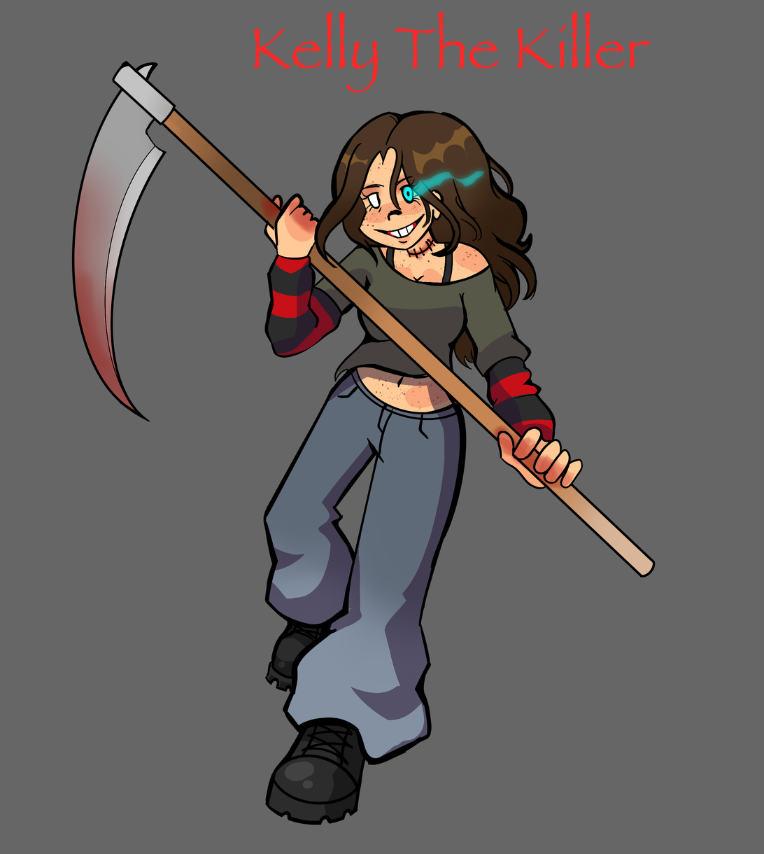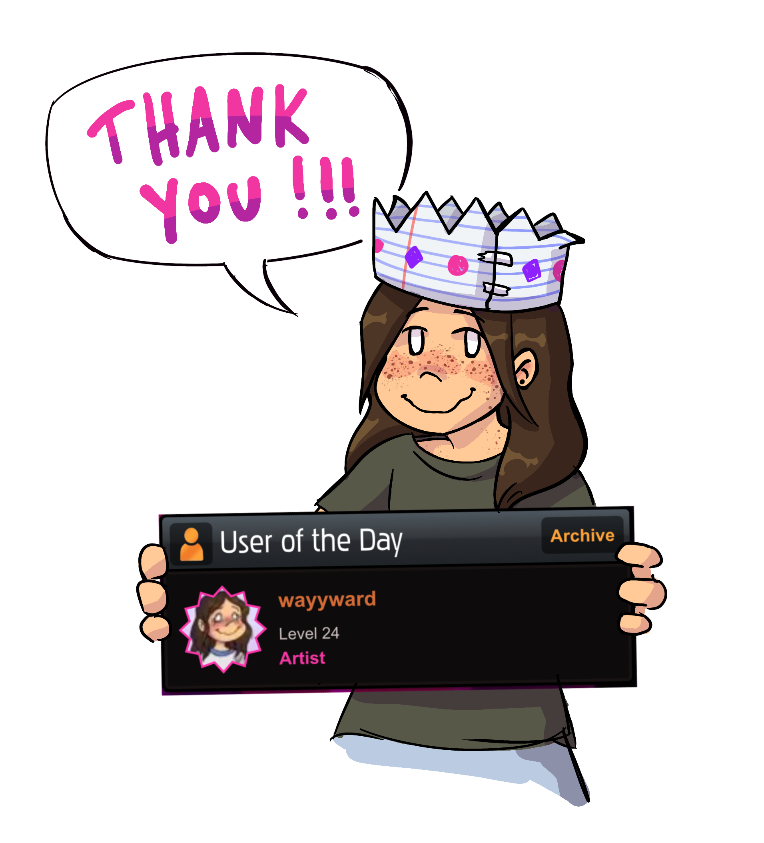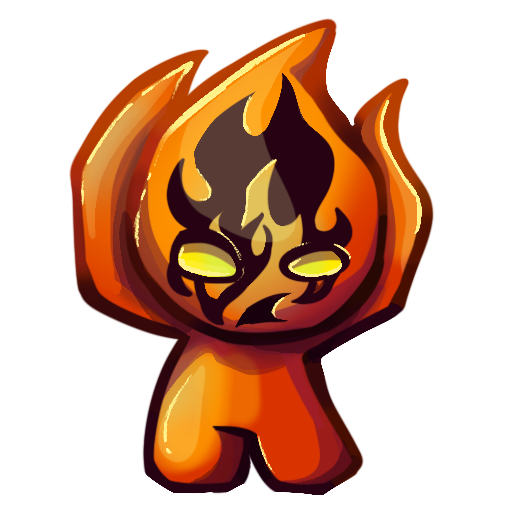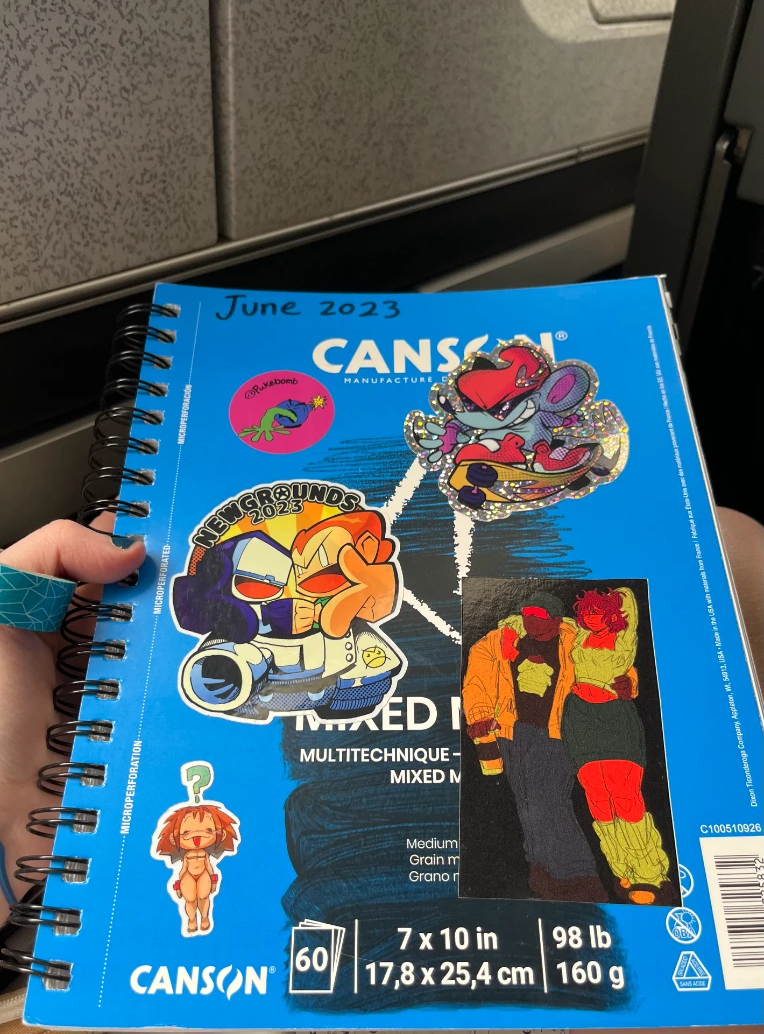Update 9/21: Making this update a little bit late, but I was really excited (and a little bit shocked) to see that this story won 2nd place! Huge thank you to everyone, for everything.
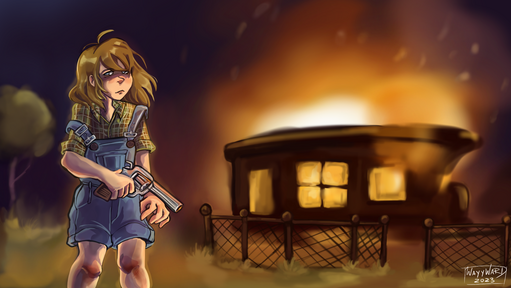
This is my entry for the Writer's Jam 1. It's a short story, based on the prompt, "kingdom".
Jamie
I lived a couple hours north of Sacramento when I was a kid. In a tiny Sierra Nevada town, where the population number barely hung above three digits. The people who lived there were mostly poor. But the rivers were long and cool and ran through deep ravines carved over generations, and from the ground sprung tall redwoods, and I’ll never forget the smell of the pines. Everywhere you looked, there was a view fit for a postcard. And that mountain air was fresher than any place I’ve ever been to.
You’d think breathing that air would heal a soul. But it didn’t.
Maybe it was the high elevation, or the fact you’d have to drive through miles of trees and views to find a place where everyone didn’t know you. Maybe it was cabin fever. Maybe rust from some of those broken down old trucks by state route 70 leached into the drinking water. Something made people a little off.
There was a man named George.
People called him King George. Even though he had no government position, he ran that town.
You could hear him before you saw him. He drove this old, rusty Ford Pinto, with a long gash in the side, and one broken headlight. Whenever George was around, that clunky old car came wheezing up the hill, and the diesel-smelling exhaust that should’ve been coming out of the tailpipe rattled and puffed out from under the hood, or through the grill, or from everywhere there was an opening.
The sound would give some folks time to high tail it out of the Exxon parking lot, or tell Sharon at the diner they wanted their food boxed up, or even to duck into a store and hide in the bathroom.
George was trouble, and he liked it when people said that. He was surprisingly average, 40-something, not too tall, and not notably thin or fat. Always wore Levi’s and a flannel shirt. But he made himself out to be a big deal. His temper was volatile, and he would explode if someone made a misstep or talked to him when he was in a bad mood. He’d stand on the toes of his pointy boots, spitting threats from under his mustache. If he was upset enough, he pulled out a revolver, but he rarely fired it.
George said he was best friends with Sheriff Smith and Deputy Brown. Said the sheriff was like family and their kinship went back generations. He said the deputy had given him money to pay for a surgery his dog needed at one point.
“That’s how I can get away with everything,” he’d say. “I could get away with murder if I want. And I’ll tell you, I have a lawyer from New York CIty. He knows me personal. Don’t even need to pay, but I can if I wanted. I’m a genius at networking. I can talk anyone into doing anything.”
My mom’s friend Johnny Parker once said George knocked on him and his wife’s trailer window at half past three in the morning, saying if Johnny didn’t come out and give him fifty dollars he supposedly owed him, he’d burn the trailer down. Johnny said no, and George stood outside for a long time, firing his shotgun in the air every few minutes. George’s mean hound dog was outside too, scratching furiously at the screen door and barking. When George started shooting the heads off the lawn angels, Johnny gave him as much as he had on hand. Which was practically nothing. The lawn angels would’ve been worth more if George had just taken them.
If you were on George’s bad side, he’d do anything he could to make your life miserable for three weeks or so. Then he’d find someone else to target. That’s just the way it was.
King George. King of a run down Sierra Nevada town no one wanted to move to. The only people who lived there had been stuck there since birth. If people did move in, it was because everywhere else was too much money. The majority of the real estate was mobile homes. Who’d want a kingdom like that? You might as well be king of a dirt pile.
I was a little girl then, in the early 1980s, when King George was terrorizing everybody. By the time I was eleven, even I had my fair share of run-ins with George.
Which brings me to the subject of my friend Jamie. She lived in the Cheyanne Mobile Village, same one as Johnny Parker, where she and her mom and two brothers rented a 14-by-72 foot trailer and a small-ish lot around it with a chain link fence. And that was a nice trailer compared to some people who lived there.
Jamie was a tough, wiry girl, probably smaller than she should’ve been for a 12-year-old. People mistook her for younger. But you didn’t really notice how small she was after a while, because she was everywhere– climbing on walls and fences and up trees, kicking cans around, poking sticks into anthills, chasing squirrels under people’s porches. She was always in motion, never at rest. Everything excited her. Everything prompted a question from her.
I knew Jamie had issues in school, and she was in special ed. I also knew she had a bad father who wasn’t allowed to come round the trailer. But Jamie was the kind of person folks just wanted to be around, and we had fun together.
Me and Jamie sometimes walked to Avery’s General Store to get snacks or soda. One day in July, we stopped in for ice cream, and as it turned out, it was the wrong place to be that day.
Jamie was squatting down by the comic book shelf, the soles of her sneakers peeling off at the back. I stood over the ice cream cooler trying to think of what to get, and I talked to Mr. Avery, who owned the store. He was gentle and never raised his voice. He was patient with even the meanest customers. His hair was always slicked back. His thick, round glasses made him look bug eyed. Mr. Avery’s golden retriever, Specks, wagged his tail and walked back and forth between me and Jamie, licking our hands and wanting attention.
The door slammed open, and in slunk George, with two other men trailing behind him. One of the men was tall with straw colored hair, and the other was rounder and shorter with an underbite like a bulldog, and a cigarette that poked out from between his small, misshapen teeth.
Me and Jamie drifted back into a corner, out of George’s way. More instinctual than a conscious choice.
“My dog’s been hurt,” said George. “Someone tried to kill him, but they didn’t succeed. He’s been howling all night in pain. If I find out who did it, they’re gonna get hit by a truck. Don’t know who I’ll have do it, but I’ll make sure someone hits ‘em.”
“Ah,” said the tall man, walking like a scarecrow over to the counter. “You got a big box?”
Mr. Avery didn’t say anything, just took an empty produce box out from under the counter.
“That’s too big,” said George. “I need a smaller box.”
“How much smaller, Mr. Townsend?” said Mr. Avery.
“You know, just the size of an average, run-of-the-mill, big box.”
I tried pulling Jamie to the door by her shirt sleeve. She didn’t wanna go with me. Just watched the men from under her shaggy bangs.
“Let’s go to the Exxon instead,” I whispered.
But Jamie kept watching, and I could see her wide, dark eyes dart from George to Mr. Avery. It was the same look she had when she was engrossed in a really interesting TV show. Or when she was studying a dead animal on the side of the road.
“Lemme stay,” said Jamie.
“Why?” I asked. “It’s just George being George.”
Specks, Mr. Avery’s dog, stood between the men and us. He didn’t growl or bark, but his hackles were raised.
“There’s this box,” Mr. Avery said. “This a good size?”
“No, no,” said George. “That’s too small. You should know a normal-sized big box when you see one. You like making simple things complicated, don’t you?”
“I have lotsa different sized boxes,” said Mr. Avery, calmly. “Might help if you said what you were gonna be using it for.”
The round man with the cigarette spoke in a long, slow monotone. “It’s just a box. Don’t be stupid. Just give us a box.”
“Alright,” said Mr. Avery. “Well, here’s a bigger box than the last one.”
“That’s too tall and not wide enough," said George.
Mr. Avery didn’t get upset, just kept looking under the counter, digging up more boxes. And every single time, George would say it was wrong, and he’d get angrier and angrier.
I tried tugging on the back of Jamie’s overalls.
“I don’t wanna be here anymore. Can we go?”
“I wanna make sure Mr. Avery’s okay,” said Jamie.
“He’s fine,” I said. “I don’t wanna get involved.”
“Now listen,” George said, raising his voice. “I don’t know who you think you are, wasting all my time, but I got important people to talk to and things to do. I could have your whole store burned down if I want. Just gimme a damn box.”
“There are no more boxes,” said Mr. Avery. “I showed you every single one.”
George started hovering his hand over his hip, where he wore a belt with a buck knife.
“Jamie,” I said.
She just stood there blank eyed as she watched.
George flashed the knife out of its sheath and held it with a grip fit for slashing things. I knew George didn’t usually hurt people, just threatened to a lot. But I was still scared and didn’t wanna get caught in the crosshairs of it. I thought Mom might scold me. And I trusted that Mr. Avery would handle the situation.
Specks started growling low and walked between George and Mr. Avery.
“Put that knife down,” Mr. Avery said. “You folks don’t need to threaten me. I’m cooperating.”
Jamie raised her thin face and rolled back her bony shoulders, like she was about to spring forward. She pushed back her shaggy, blond bangs, so that her dark, sunken eyes showed clearer. There were circles underneath, from sickliness, or tiredness. I never noticed how hollow-eyed she was under the bangs.
I could’ve sworn she was an idiot.
“What are you gonna do?” I whispered. “You can’t stop him.”
She stayed next to me– didn’t step forward, just calmly spoke, in her soft, small voice. “He showed you all the boxes.”
George turned with an intense glare in his eye. And when he saw that it was Jamie who spoke to him, his brow raised in confusion, and then furrowed in contempt.
“Go on home,” he said, as if he was talking to a misbehaved four year old. “Talking back to grown ups won’t do you no good. You’re too young and stupid to get it.”
Jamie didn’t look scared or angry. She barely moved, and she didn’t smile or frown. Just stared at him like she had been doing. Like she was studying him. Trying to learn something. “Alls I said is he showed you all the boxes. You gonna go burnin’ down the store just cause he don’t have the one you want?”
“You gonna go to school and learn some basic first grade English?” said George. “I can’t reason with people who’re too uneducated to string intelligible sentences together.”
“You gonna use that knife?” said Jamie.
I cowered behind her, even though I was at least a head taller. I didn’t really feel any safer. Maybe I just wanted to show George I didn’t mean any harm. Funny, since he was the one with the knife.
“I’ll use the knife if I needa use the knife. And I ain’t scared to use it on kids.”
The door opened again and Deputy Brown walked in. George put the knife away, then he looked back down at Jamie with a yellow-toothed sneer.
“You’ll learn your lesson,” George said to Jamie. “I’ll teach you not to talk back to adults. Every bratty kid needs to learn that at some point.”
George nodded to his other two men, and took a pack of beer cans from the cooler by the door. He kicked Specks with his boot before walking out. The dog whined but didn’t bite back. The two other men took bags of chips and candy bars and sandwiches and packs of cigarettes. The tall one even took a whole stack of lottery scratch tickets.
Mr. Avery told us he called the sheriff’s office when Jamie had George’s attention.
“It’s just not fair,” said Jamie, “You let him take your stuff.”
“No, it's not fair, but that’s life,” said Mr. Avery. “That’s the way it is.”
“Why didn’t you do nothing when he was taking your stuff?” said Jamie.
“I wouldn’t’ve gone to the trouble of calling at all, but I couldn’t let him threaten kids.”
“Hope he goes to jail for this,” said Jamie. She turned to Mr. Avery, “He’s gonna go to jail, isn’t he?”
Mr. Avery said nothing, but watched with us from the front window of the general store. George got in the passenger seat of the cruiser. We didn’t see him get handcuffed like people do on TV.
I told Jamie, “I hope they finally make him stop. Threatening kids is low, even for him.”
Jamie didn’t take her eyes off the passenger side of the cruiser as it drove away. “He thinks he’s king of everything. If I was king or queen of everything I’d be a hell of a lot nicer to folks I thought I was better than.”
The next day as I was riding my bike to the trailer village, I saw George hanging around with some people by the Exxon station. He walked even more smug than usual, if you’d believe it. That night, Mom told me someone at the bar told her that Sheriff Smith and Deputy Brown gave George a “talking-to” but it was more like the three of them went out for lunch at the diner.
I went to Jamie’s the next day. The grass around the trailer village, brown and beaten down from years of boots and dog paws trampling it, was even drier than usual. It was a hot day, too hot to stay outside. You could hear the cicadas’ high pitched buzzing all day. People wanted rain. Someone said they had seen smoke on the mountain. The deputy drove one cruiser up and saw that a cabin’s roof caught fire. Everyone was saying the dryness and the wind caused it. And that wildfires might follow.
Me and Jamie were lying on our stomachs in the big room of her trailer, in front of the grainy, black and white TV. The screen was probably no bigger than a foot across.
“I can’t believe it,” said Jamie. “He can pull a knife on folks and alls he gets is lunch with the police?”
“Guess so,” I said. “Like Mr. Avery said. We don’t have to like it, but that’s the way it is. Now, I wanna make a card castle, so move the fan away.”
Jamie moved the floor fan in front of her face. She wore her same battered overall cutoffs that day, just with a lighter, short-sleeved plaid shirt. She swung her legs back and forth above her. Her beat-up and faded green converse lazily knocked into each other, like she wanted to get up and run. It was like I said, even when Jamie was at rest, a part of her always had to be moving.
“Shouldn’t be the way it is,” said Jamie. “So why is I s’posed to accept it? I seen Louise this morning, the lady in the double-wide next door. Told me that George’s stolen people’s cars before. He’s broken into people’s houses. Burned people’s trailers a couple times. Actually burned them down ‘stead of just saying he would. He hurts animals too.”
“He’s always done that,“ I said. “He’s done that since before we were born.”
"Still shouldn’t be how it is," said Jamie, "Louise said when she was at the grocery store, someone said George is targeting me now.”
I looked up from the castle of cards I’d been building, and my matchbox VW hippie camper I was about to drive through it. Honestly, I didn’t believe her. Maybe I thought the people George targeted did something major and on purpose to upset him. Maybe I thought Jamie was being dramatic. Maybe I thought that since Jamie was a kid, George would go easy on her. I just didn’t believe it.
“You’re being paranoid,” I told her. I regret telling her that. “No one’s coming after you, okay? You barely did anything wrong.”
“That’s the point,” said Jamie. “He hunts people on his bad side. Doesn’t have to mean they did nothing wrong.”
“Well, what’s he even gonna do?” I asked.
Jamie took another matchbox car out of our plastic bin. A brown Pinto. She drove it over to my card castle and parked it underneath.
“Louise said he’s gonna burn this trailer down,” she said quietly. “Or he’ll make his friends do it, while he’s safe in his castle.”
“What castle?” I asked. “He’s poor like the rest of us.”
“He don’t have to be rich to have a castle and a kingdom. Just has to have power.”
“He likes when people are afraid of him,” I said, rolling over onto my back, and staring up at the water-damaged ceiling. The trailer really wasn’t much, and that’s why I didn’t wanna believe that he’d go to the trouble of burning it down. Her family owned nothing. “You saying that’s why he’s so powerful?” I added.
“Yeah,” she said.
“Alright,” I said.
“You know, he’s worse than the worst kids at school,” said Jamie. “And those kids get punished for missing homework worse than George does for burning down people’s houses. That’s real life– it ain’t fair and it don’t follow any rules.”
“Yeah, it sucks,” I said.
“You know we’re defending him,” said Jamie. “Every time someone don’t stand up to him. We let him get away with stuff even if we don’t mean to.”
"How are we supposed to stand up to him?" I asked. "We're just kids."
"Maybe we should treat him how he treats us," said Jamie. "Maybe then he'll stop."
"But wouldn't that make us just as bad?" I asked.
“It should be our kingdom just as much as George's. Why shouldn't we get a say in what happens?”
I got a note in my mailbox the next day. I immediately knew it was from Jamie because the handwriting looked like a four year old did it.
I told my mom about George's threats. Mom talked to cops. I did too.
There is “no evidence.”
Not surprised.
George heard. George is mad.
-Jamie
I didn’t see Jamie for the rest of that day. But I saw George outside the general store.
"I can talk anyone into anything," he said. "I can get anyone on my side. Get this: the sheriff doesn't even like me anymore. He says my behavior's 'deplorable'. But he doesn't have a say in the matter. My lawyer could get me out of arson if I wanted."
That night, I saw smoke coming from the trailer village. And the smell of the smoke wasn’t like a campfire. This smell was electrical and polluted, like burnt rubber and wires. Mom drove me to Jamie's trailer. The sunset was red and raw, because the fire burned brighter. Everyone who lived nearby gathered on the street and watched. Ash fell like snow.
I saw the fireball, where Jamie’s trailer once stood. Through the exposed molten ribs of the walls I saw blackened, melted furniture. And the 12-inch-screen TV lay charred nearby. The skeleton of the chain link fence still jutted out of the dirt. Jamie’s mom and her brothers were fine. As fine as you can be watching all you have burn to the ground. All the photo albums, all the food and appliances, all the snow globes, all the books, all the kids' drawings and toys. All Jamie’s mother had earned in life– her kingdom. The sheriff was right; it was deplorable.
The burning wreck was too hot to stand near, but I saw a figure a few yards away, looming over something on the ground. I ran up without thinking. Jamie stood over George, holding his revolver in her hand. The fire George had set raged behind her, crowning her with an eerie, burning halo. She didn't look triumphant, just scared and confused.
“I thought I had to,” she said.
George never murdered anybody. But Jamie just had. She never wanted this, but our town was her kingdom now. I almost believe George was proud to pass the crown onto her.



